
In September 2021, the Hispanic/Latino Commission of Michigan (HLCOM) named MSU alumna Dr. Isabel Montemayor-Vazquez the executive director, and she began her role that same month. Dr. Montemayor-Vazquez received both her master’s and doctorate’s degrees from the MSU Department of Anthropology.
“I was interested in this position because it marries my political science background and applied activist driven anthropology background perfectly,” Dr. Montemayor-Vazquez said. “In this position, I can advocate for the needs of the community, work with non-profit organizations serving the Latinx community, train different state agencies on structural and systemic inequities, and most importantly, contribute to policy change.”
According to their website, the commission exists to advocate for the well-being of the Hispanic/Latino population with the vision of achieving an environment of social justice and economic parity for the Hispanic/Latino population. As executive director of the commission, Dr. Montemayor-Vazquez is charged with organizing the activities of the commission and working directly with the commissioners to serve as a bridge between state government and the communities of constituents they serve.
“It’s an incredible and humbling leadership role, where I am able to amplify the voices of the community through various grants, partnerships, and programs we have established. Working for the state of Michigan as a civil servant, there are few Latinas in positions of leadership, and so it’s an exceptional opportunity to serve as a mentor for young first-generation Latinas who have a similar background and family history .”
As executive director, her first goals were to hold individual listening sessions with each of the commissioners to better understand how they see their role as commissioner. Another immediate goal was to recruit a legislative intern to assist in producing a legislative report in Spanish and English that follows legislative bills and their impact on the Latinx community. Increasing job opportunities and improving economic prosperity for the Latinx community are priorities found in the mission and vision of the commission, so a third goal was to create a Latinx job fair for recent college graduates.
“I am proud to say that all three ofthese immediate goals along with improving the on-boarding process for our new commissioners have come to fruition.”
Dr. Montemayor-Vazquez received both her master’s and doctorate degrees at MSU in cultural anthropology. During her time at MSU, she felt the most meaningful opportunity she experienced was being able to teach. Her teaching experience at MSU prepared her for accepting a professorship at UTA Arlington where she taught Sociology and Anthropology for six years. As executive director, she still has opportunities to teach on many of the topics that were interesting to her as a student and are pertinent to the Latinx community of Michigan.
Another meaningful experience during her time at MSU was when the department funded her and several other graduate students to present their research at the Society for Applied Anthropology conference in Merida, Yucatan.
“My research was centered around Michoacan and I had never ventured as far as Merida. It was such a unique experience to travel with fellow anthropology students to present in such an accepting environment, on a panel together, and also learn about the indigenous history of Yucatan together.”
Dr. Montemayor-Vazquez looks back on receiving her advanced degree in anthropology as a wonderful and useful tool in being able to give back to her community.
“I never could have imagined I would be able to use my degree in the community where I grew up and make a difference in so many people’s lives. The Hispanic/Latino Commission does a lot of work behind the scenes to ensure the Latinx community has the necessary platforms to voice their concerns. Additionally, the commission strives to provide ample opportunities for the Latinx community to thrive in the state of Michigan. It’s a privilege to work in this capacity and serve my community.”

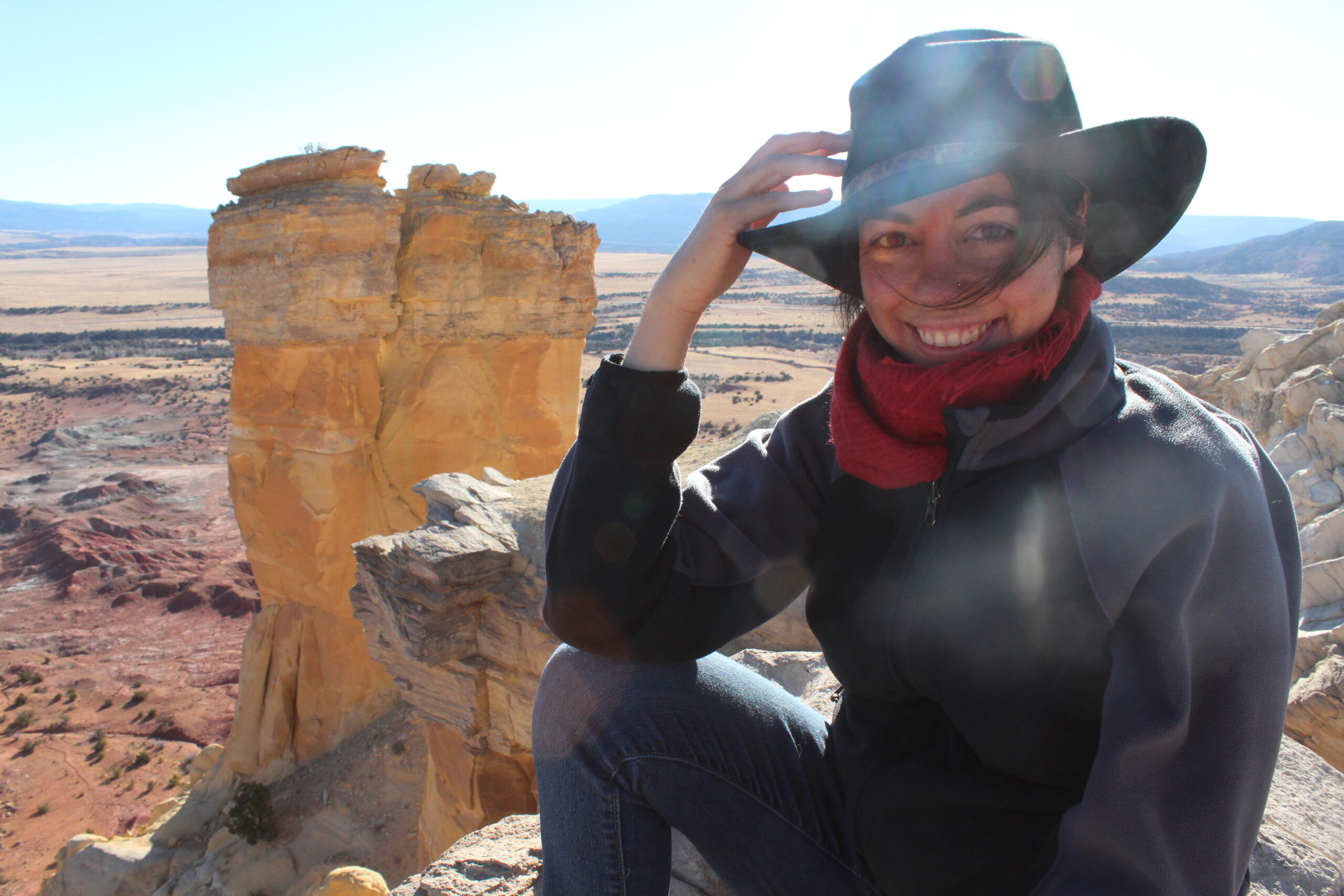




 Congratulations to Marcella Omans for her
Congratulations to Marcella Omans for her 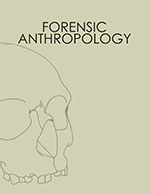
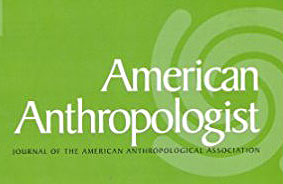



 Ms. Breanna Escamilla was chosen as the MSU College of Social Science Spring 2018 Student Commencement Speaker. Breanna majored in anthropology with a focus on sociocultural studies as well as completing a double minor in
Ms. Breanna Escamilla was chosen as the MSU College of Social Science Spring 2018 Student Commencement Speaker. Breanna majored in anthropology with a focus on sociocultural studies as well as completing a double minor in 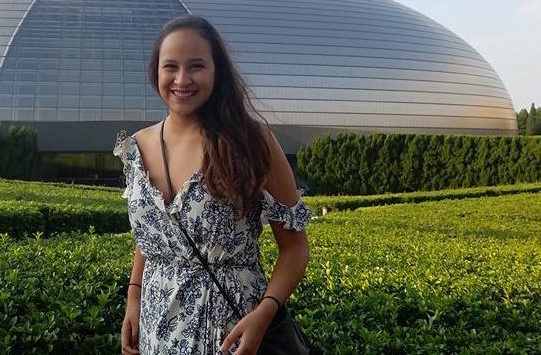
 Congratulations to Marcela Omans for her NSF Graduate Research Fellowship she received for her project entitled “La Mesa Barrio Chino, Tijuana, Mexico: China’s Gateway to Latin America.”
Congratulations to Marcela Omans for her NSF Graduate Research Fellowship she received for her project entitled “La Mesa Barrio Chino, Tijuana, Mexico: China’s Gateway to Latin America.”
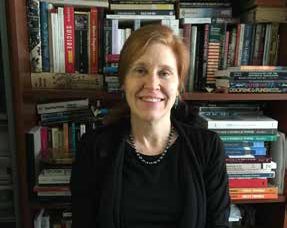
 Dr. Beth Drexler has been very research active recently, thanks to an American Institute for Indonesian Studies Luce Fellowship (2014-2016) and a Fulbright (2015-2017). Her current project explores human rights and memories of violence in the aftermath of authoritarian rule in Indonesia and Timor-Leste (known as East Timor during its occupation by Indonesia). Her next book, tentatively titled “Human Rights, Transitional Justice and History in Indonesia,” analyzes the process of producing and circulating knowledge about past human rights violations in and through public culture, film, fiction, art, courtrooms, documents, and efforts to write new histories. She’s conducted archival research, interviews, and participant observation in relation to the past, and is also working with organizations to explore new issues in the democratic present.
Dr. Beth Drexler has been very research active recently, thanks to an American Institute for Indonesian Studies Luce Fellowship (2014-2016) and a Fulbright (2015-2017). Her current project explores human rights and memories of violence in the aftermath of authoritarian rule in Indonesia and Timor-Leste (known as East Timor during its occupation by Indonesia). Her next book, tentatively titled “Human Rights, Transitional Justice and History in Indonesia,” analyzes the process of producing and circulating knowledge about past human rights violations in and through public culture, film, fiction, art, courtrooms, documents, and efforts to write new histories. She’s conducted archival research, interviews, and participant observation in relation to the past, and is also working with organizations to explore new issues in the democratic present.